Find Help
More Items From Ergsy search
-

Having a kidney transplant
Relevance: 100%
-

Patient Stories - Having a kidney transplant
Relevance: 92%
-

Matthew's Story: Kidney Transplant - Part 1
Relevance: 90%
-

Kidney transplant waiting stories – DJ Ace and Lauren | NHS Organ Donation
Relevance: 79%
-

Chronic kidney disease: What are the treatments?
Relevance: 63%
-
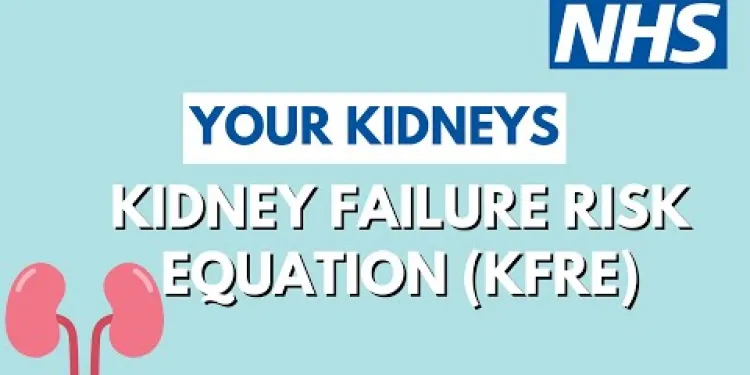
What is my risk of kidney failure with CKD (chronic kidney disease) | UHL NHS Trust
Relevance: 50%
-

Hair Transplants in Turkey
Relevance: 50%
-

What are kidney stones?
Relevance: 50%
-
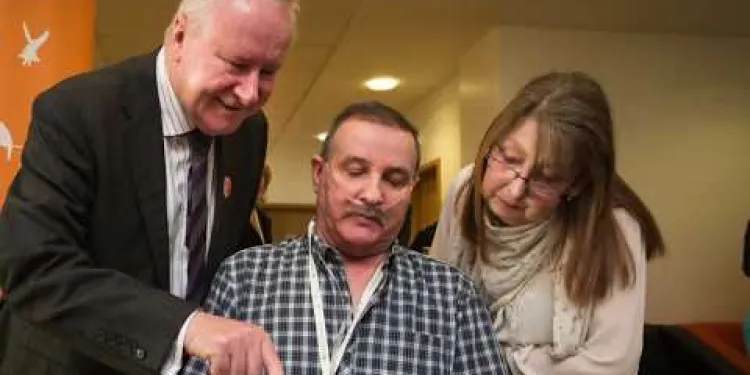
Bernard's Story - Lung Transplant
Relevance: 49%
-
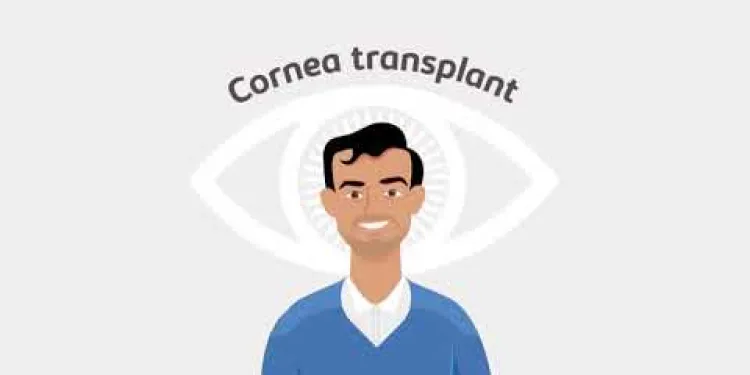
Cornea transplant - Your journey
Relevance: 48%
-

What causes chronic kidney disease?
Relevance: 48%
-

Are hair transplants in Turkey safe?
Relevance: 48%
-

Cornea transplant patient Information
Relevance: 47%
-
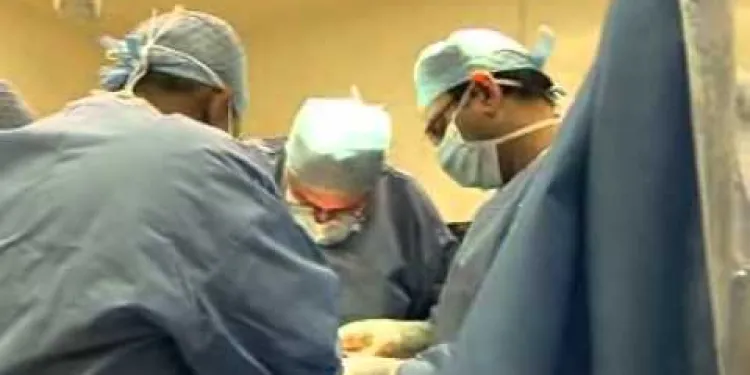
Liver transplant - Patient experience - Part 1 (Colin)
Relevance: 45%
-

What is the cost of a hair transplant in Turkey?
Relevance: 45%
-
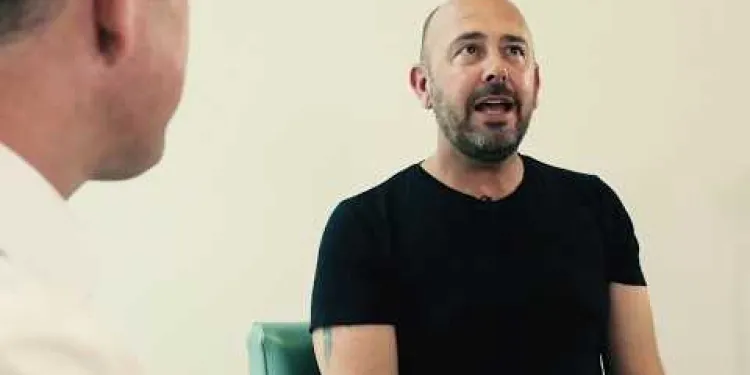
Living with early stage kidney disease
Relevance: 45%
-
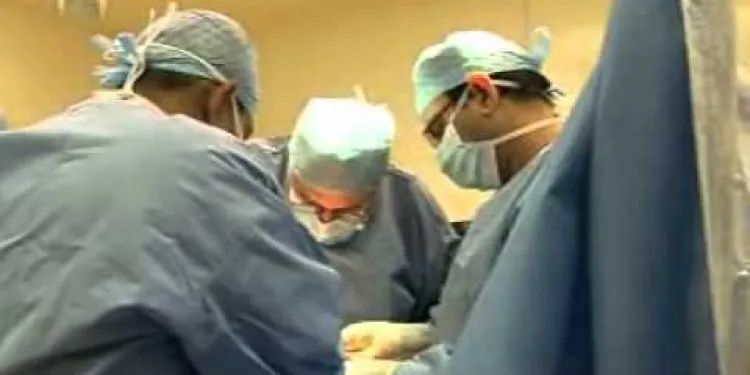
Liver transplant - Patient experience - Part 2 (Lynne)
Relevance: 45%
-
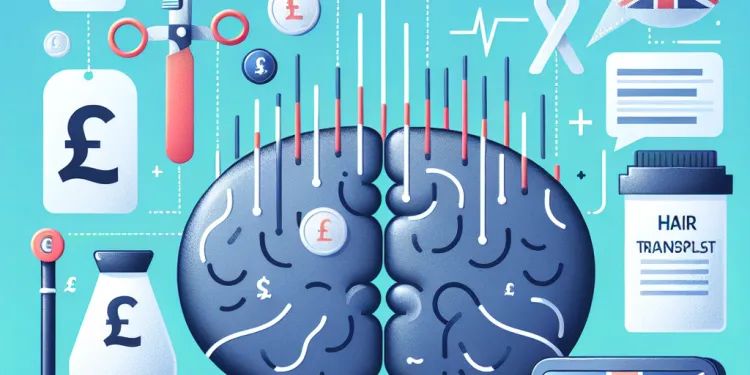
What are the risks associated with hair transplants in Turkey?
Relevance: 45%
-

What techniques are used for hair transplants in Turkey?
Relevance: 44%
-

Heart-lung transplant patient shares her story
Relevance: 44%
-

Does Ozempic have an impact on kidney function?
Relevance: 43%
-

How should I prepare for a hair transplant in Turkey?
Relevance: 42%
-

How long should I stay in Turkey for my hair transplant?
Relevance: 42%
-

Will I need a follow-up visit after my hair transplant in Turkey?
Relevance: 42%
-

NHSGGC - Diet and Chronic Kidney Disease (CKD)
Relevance: 40%
-

What should I eat to help with chronic kidney disease?
Relevance: 39%
-

Is language a barrier for a hair transplant in Turkey?
Relevance: 39%
-
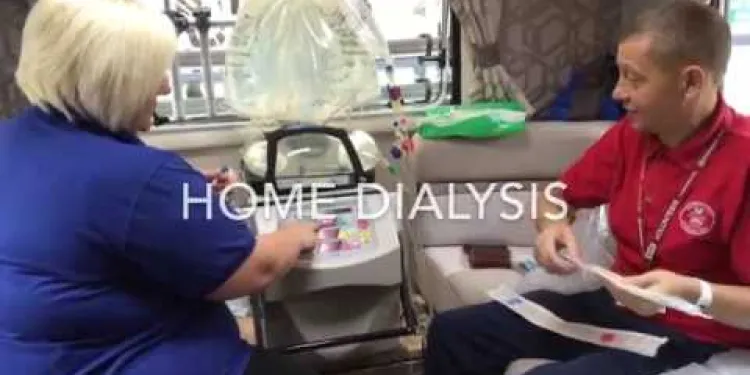
Home dialysis help for kidney patients
Relevance: 34%
-
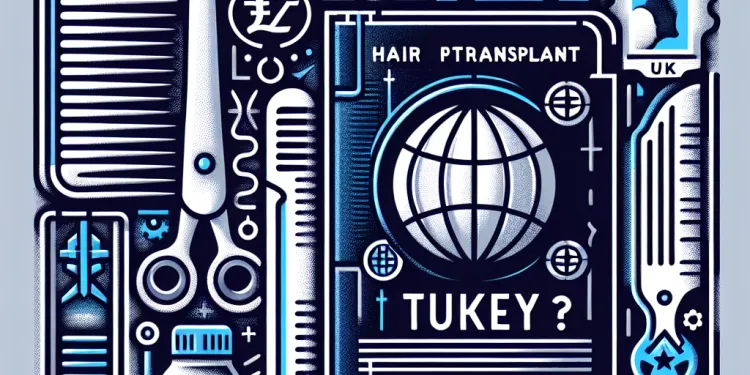
Do I need a visa for a hair transplant in Turkey?
Relevance: 33%
-

How soon can I return to work after a hair transplant in Turkey?
Relevance: 27%
-
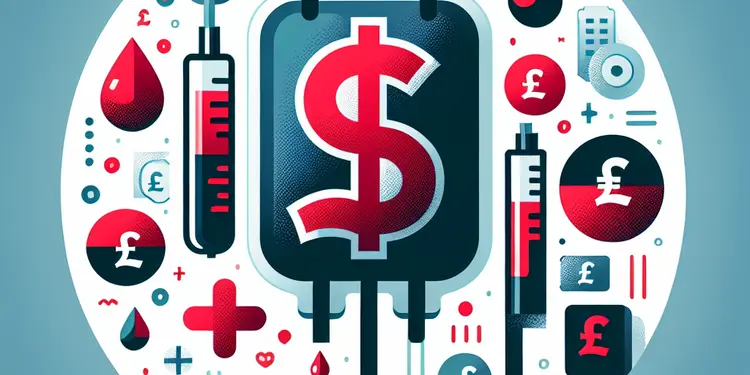
What are some common reasons blood transfusions are needed?
Relevance: 24%
-

Who is at risk for severe illness from West Nile Virus?
Relevance: 23%
-

What are the risks of having high blood pressure?
Relevance: 22%
-

What complications are associated with Type 2 Diabetes?
Relevance: 22%
-

Can high blood pressure lead to other health problems?
Relevance: 22%
-

Why is Turkey a popular destination for hair transplants?
Relevance: 19%
-

What is the recovery time after a hair transplant in Turkey?
Relevance: 18%
-

What should I expect after my hair transplant in Turkey?
Relevance: 18%
-

Can foreigners easily travel to Turkey for a hair transplant?
Relevance: 18%
-
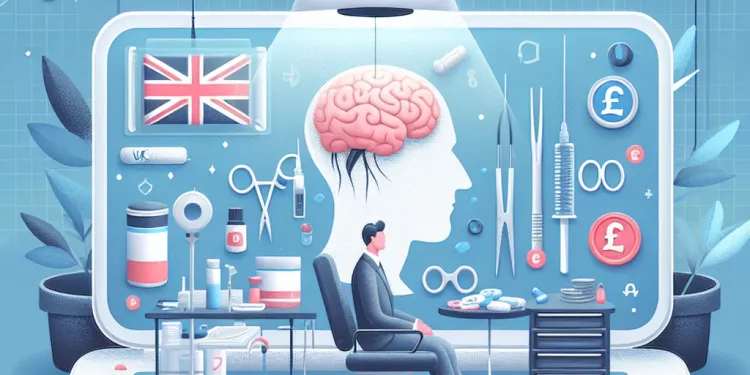
How do I choose the right clinic for a hair transplant in Turkey?
Relevance: 18%
Patient Stories - Having a Kidney Transplant
Introduction to Kidney Transplantation
Kidney transplantation is a life-changing procedure for individuals suffering from end-stage renal disease (ESRD) or chronic kidney failure. In the United Kingdom, NHS Blood and Transplant facilitates this intricate process, providing hope and renewed life for many patients. Kidney transplants can vastly improve quality of life, offering freedom from dialysis and the chance to lead a more normal life.Undergoing the Transplant Process
The transplant process entails several crucial stages, starting with a comprehensive evaluation of the patient's overall health. Compatibility with a donor kidney, either from a deceased donor or a living donor, is essential. Living donors often are family members or close friends, and their compatibility is determined through rigorous tests. Surgery is a critical step, involving skilled surgeons who ensure the patient receives the donor kidney successfully. Post-surgery, patients are closely monitored in the recovery phase to manage and prevent any potential complications.Post-Transplant Care and Medication
After a transplant, consistent care is vital. Patients must follow a strict regimen of immunosuppressive medications to prevent their body from rejecting the new kidney. These medications, though essential, can have side effects, necessitating regular follow-up appointments. Nutrition and lifestyle changes also play a crucial role in maintaining the health of the transplanted kidney. Patients often receive guidance from healthcare providers on diet, exercise, and other lifestyle factors to ensure the continued success of the transplant.Personal Experiences and Advice
Patient stories provide valuable insights into the real-life experiences of those who have undergone kidney transplants. Many individuals in the UK have shared their journeys, highlighting the emotional and physical challenges they faced. These stories often showcase the resilience and hope that drive recovery. Common advice from transplanted patients includes staying positive, adhering to medical advice, and seeking support from friends, family, and patient support groups. Engaging with these narratives can offer encouragement and practical tips for others awaiting or recovering from a kidney transplant.Conclusion
Kidney transplantation is a beacon of hope for those suffering from severe kidney conditions. The journey, while challenging, brings significant improvements in quality of life. In the UK, accessible healthcare support and patient stories can guide and inspire those navigating this transformative experience. Through shared experiences and expert care, kidney transplant patients can look forward to a healthier, fulfilled life ahead.Patient Stories - Having a Kidney Transplant
What is a Kidney Transplant?
A kidney transplant is a big operation that helps people whose kidneys are failing. In the UK, the NHS helps to find donors and organize the transplant. This surgery can make life much better for patients. It allows them to stop dialysis and live more normally.What Happens During a Transplant?
Getting a kidney transplant involves important steps. First, doctors check the patient's health. They need to find a kidney that matches, which can come from a person who has died or someone alive. Often, family or friends donate. Doctors do many tests to check if the match is good. The surgery is done by skilled doctors. After this, patients rest and recover while doctors watch them closely so they don't get sick.Care and Medicine After Transplant
After surgery, taking care of the new kidney is very important. Patients need to take special medicine so their body accepts the new kidney. These medicines can make people feel a bit sick, so regular doctor visits are needed. Eating well and exercising also help keep the kidney healthy. Doctors give advice on food and exercise to help make the transplant a success.Stories and Tips from Patients
People who have had kidney transplants share their stories. They talk about their feelings and the challenges they faced. Many of them talk about how staying positive and listening to doctors helped them heal. They also say talking to friends, family, and support groups gives strength. These stories can give hope and ideas to others waiting for or recovering from a kidney transplant.Conclusion
A kidney transplant brings hope to those with serious kidney problems. Even though it is tough, it greatly improves life. In the UK, the NHS and stories from patients can help and inspire others going through this journey. With support and care, people with new kidneys can enjoy a healthier and happier life.Frequently Asked Questions
What is a kidney transplant?
A kidney transplant is a surgical procedure to place a healthy kidney from a donor into a person whose kidneys no longer function properly.
Who can donate a kidney?
A kidney donor can be a living person, such as a family member or friend, or a deceased donor whose family has agreed to donate their organs.
How do I know if I need a kidney transplant?
You might need a kidney transplant if you have end-stage kidney disease, meaning your kidneys have lost about 90% of their function.
What are the risks of a kidney transplant?
Risks include infection, bleeding, blood clots, rejection of the new kidney, and complications from the medications required to prevent rejection.
How long does the surgery take?
The kidney transplant surgery typically lasts about 3 to 5 hours.
What is the recovery time after a kidney transplant?
Recovery time varies, but most patients stay in the hospital for about a week and may resume normal activities after 6 to 8 weeks.
Will I need to take medications after the transplant?
Yes, you will need to take immunosuppressant medications for the rest of your life to prevent your body from rejecting the new kidney.
Can I return to work after a kidney transplant?
Yes, many people return to work after recovering from a kidney transplant, though it might take a few months before you feel ready.
What lifestyle changes should I expect after a kidney transplant?
You will need to follow a healthy diet, avoid certain medications and supplements, and maintain regular follow-up appointments with your healthcare team.
Are there any restrictions on activities post-transplant?
Initially, you should avoid heavy lifting and strenuous activities, but most people can gradually return to normal physical activities.
How successful are kidney transplants?
Success rates for kidney transplants are high, with about 90% of transplants lasting at least 5 years. Many can function well for 10-20 years or longer.
What should I do if my body rejects the new kidney?
Contact your transplant team immediately if you suspect rejection. Early intervention can often treat rejection and help save the transplant.
Can I still travel after a kidney transplant?
Yes, once your doctor clears you, you can travel. However, it’s important to avoid regions with high risks of infections and to carry all necessary medications.
How soon can I eat after the surgery?
You may be able to start eating within a few days post-surgery, beginning with liquids and gradually moving to solid foods as tolerated.
Is a kidney transplant covered by the NHS?
Yes, kidney transplants are covered by the NHS in the UK, including the surgery, hospital stay, and necessary follow-up care.
What is a kidney transplant?
A kidney transplant is a surgery. Doctors put a new kidney in your body. This helps if your kidneys do not work well.
Here is how it works:
- Doctors find a good kidney from a healthy person. This person could be living or has just passed away.
- The new kidney goes into your body.
- The new kidney helps clean your blood.
Ways to understand better:
- Ask a doctor to use simple words.
- Use pictures or videos to see how it works.
- Ask your caregiver or a trusted person to help explain.
A kidney transplant is an operation. Doctors put a healthy kidney from another person into someone whose kidneys don't work anymore.
Who can give a kidney?
Some people can give one of their kidneys to someone who needs it.
Here are the things that are important:
- You need to be healthy.
- You should be at least 18 years old.
- You have to want to give your kidney.
- A doctor will check if it's safe for you to give your kidney.
If you want help or more information, ask an adult or a doctor. You can also use pictures or talk to someone who knows about giving kidneys.
A kidney donor is someone who gives a kidney. This person can be alive, like a family member or a friend. Or the donor can be someone who has died, and their family agreed to give their organs to help others.
How can I tell if I need a new kidney?
You might need a kidney transplant if your kidneys stop working well. This can happen when your kidneys lose about 90% of their power to do their job.
What could go wrong with a kidney transplant?
Taking a new kidney can have some problems. These problems might be getting an infection, bleeding, or having blood clots. Sometimes, the body might not accept the new kidney. Also, you might have problems from the medicines you need to take. These medicines help your body accept the new kidney.
How long is the surgery?
The surgery usually takes a few hours.
Ask a doctor or nurse if you want to know more.
They can help you understand better.
Using a clock or timer can also help you keep track of time.
The kidney transplant surgery usually takes 3 to 5 hours.
How long does it take to get better after a kidney transplant?
How long it takes to get better is different for each person. Most people stay in the hospital for about one week. After going home, you might start doing normal things again in 6 to 8 weeks.
Will I need to take medicine after the transplant?
Yes, you will need to take medicine after the transplant. This helps your body accept the new organ.
You can use a medicine chart or an app to remind you to take your medicine on time.
Ask someone you trust, like a family member or friend, to help you remember too.
Yes, you will need to take special medicine every day for the rest of your life. This medicine stops your body from attacking the new kidney.
If reading is hard, try using tools like audiobooks or text-to-speech apps to listen instead.
Can I go back to work after getting a new kidney?
Yes, many people go back to work after getting better from a kidney transplant. It might take a few months before you feel ready to return.
What changes should I expect in my life after a kidney transplant?
After a kidney transplant, your life will change in some ways. Here are some things you might expect: - **Taking Medicine**: You will need to take medicine every day to help your new kidney stay healthy. - **Doctor Visits**: You will have regular check-ups with your doctor to make sure everything is okay. - **Healthy Eating**: It's important to eat healthy foods to keep your new kidney working well. - **Exercise**: Staying active can help you feel better and keep your body strong. - **Limit Alcohol**: Try to drink less alcohol to help your kidney stay healthy. Remember, your doctor can help you understand what you need to do. You can also ask a family member or a friend to help you keep track of your new routine.You should eat healthy foods. Don't take some medicines or vitamins without asking your doctor. Go to all your doctor appointments.
What can you do after a transplant?
After a transplant, your doctor will tell you about things you can do and things you should not do. Always listen to your doctor.
Here are some tips:
- Go for short walks to help your body get strong.
- Ask an adult if you want to play sports or ride a bike.
- Rest if you feel tired. It's okay to take breaks.
- Try puzzles and drawing to relax your mind.
These tips can help you feel better and stay healthy.
At first, do not lift heavy things or do hard exercise. But most people can slowly start doing normal things again.
How well do kidney transplants work?
A kidney transplant is when you get a new kidney from another person.
Many people get new kidneys each year, and most of the time, these new kidneys work well.
If you get a kidney transplant, doctors will help you take care of it. They may give you medicines to keep your new kidney healthy.
Here are some ways to learn more:
- Ask your doctor questions if you don't understand.
- Talk to someone who has had a kidney transplant.
- Watch videos for kids about kidney transplants.
Kidney transplants usually work well. They work well in 9 out of 10 people for at least 5 years. After that, many kidneys can still work for 10 to 20 years, or even more.
What can I do if my body does not accept the new kidney?
If your body is saying "no" to the new kidney, it is important to talk to your doctor. They can help you. Here are some steps to take:
- Tell your doctor how you feel.
- Follow doctor’s advice and take your medicine.
- Ask someone you trust to help you remember doctor visits and medicine.
- Use a calendar or phone reminder for medicines and appointments.
Remember, your doctor is there to help you feel better.
If you think your body is rejecting the transplant, talk to your transplant team right away. Acting quickly can help fix the problem and keep the transplant safe.
Can I go on a trip after getting a new kidney?
Yes, you can go on a trip after you get a new kidney. But you have to be careful and plan your trip well. Here are some tips to help you:
- Talk to your doctor before you go on a trip.
- Make sure you have all your medicines with you.
- Drink lots of water to stay healthy.
- Rest when you feel tired.
- Wash your hands to keep away germs.
It is important to listen to your body and tell your doctor if you feel unwell.
Yes, you can travel after your doctor says it's okay. But stay away from places where you might get sick. Take all your needed medicine with you.
When can I eat after the surgery?
After the surgery, you might be hungry. But it's important to wait to eat.
Ask a nurse or doctor when it is safe to have food. They will let you know.
It is important to follow their advice to feel better.
You can use a clock or timer to help you remember when you can eat.
After surgery, you might be able to start eating again in a few days. Begin with drinks and slowly try soft foods. When you feel ready, you can start eating solid foods.
Will the NHS pay for a new kidney?
The NHS can help if you need a new kidney.
You can ask your doctor for more information.
Supportive tools:
- Ask a family member or friend to help you understand.
- Use pictures to help explain what a kidney transplant is.
Yes, the NHS in the UK pays for kidney transplants. This includes the surgery, hospital stay, and care afterwards.
Useful Links
This website offers general information and is not a substitute for professional advice.
Always seek guidance from qualified professionals.
If you have any medical concerns or need urgent help, contact a healthcare professional or emergency services immediately.
Some of this content was generated with AI assistance. We’ve done our best to keep it accurate, helpful, and human-friendly.
- Ergsy carfully checks the information in the videos we provide here.
- Videos shown by Youtube after a video has completed, have NOT been reviewed by ERGSY.
- To view, click the arrow in centre of video.
- Most of the videos you find here will have subtitles and/or closed captions available.
- You may need to turn these on, and choose your preferred language.
- Go to the video you'd like to watch.
- If closed captions (CC) are available, settings will be visible on the bottom right of the video player.
- To turn on Captions, click settings .
- To turn off Captions, click settings again.
More Items From Ergsy search
-

Having a kidney transplant
Relevance: 100%
-

Patient Stories - Having a kidney transplant
Relevance: 92%
-

Matthew's Story: Kidney Transplant - Part 1
Relevance: 90%
-

Kidney transplant waiting stories – DJ Ace and Lauren | NHS Organ Donation
Relevance: 79%
-

Chronic kidney disease: What are the treatments?
Relevance: 63%
-

What is my risk of kidney failure with CKD (chronic kidney disease) | UHL NHS Trust
Relevance: 50%
-

Hair Transplants in Turkey
Relevance: 50%
-

What are kidney stones?
Relevance: 50%
-

Bernard's Story - Lung Transplant
Relevance: 49%
-

Cornea transplant - Your journey
Relevance: 48%
-

What causes chronic kidney disease?
Relevance: 48%
-

Are hair transplants in Turkey safe?
Relevance: 48%
-

Cornea transplant patient Information
Relevance: 47%
-

Liver transplant - Patient experience - Part 1 (Colin)
Relevance: 45%
-

What is the cost of a hair transplant in Turkey?
Relevance: 45%
-

Living with early stage kidney disease
Relevance: 45%
-

Liver transplant - Patient experience - Part 2 (Lynne)
Relevance: 45%
-

What are the risks associated with hair transplants in Turkey?
Relevance: 45%
-

What techniques are used for hair transplants in Turkey?
Relevance: 44%
-

Heart-lung transplant patient shares her story
Relevance: 44%
-

Does Ozempic have an impact on kidney function?
Relevance: 43%
-

How should I prepare for a hair transplant in Turkey?
Relevance: 42%
-

How long should I stay in Turkey for my hair transplant?
Relevance: 42%
-

Will I need a follow-up visit after my hair transplant in Turkey?
Relevance: 42%
-

NHSGGC - Diet and Chronic Kidney Disease (CKD)
Relevance: 40%
-

What should I eat to help with chronic kidney disease?
Relevance: 39%
-

Is language a barrier for a hair transplant in Turkey?
Relevance: 39%
-

Home dialysis help for kidney patients
Relevance: 34%
-

Do I need a visa for a hair transplant in Turkey?
Relevance: 33%
-

How soon can I return to work after a hair transplant in Turkey?
Relevance: 27%
-

What are some common reasons blood transfusions are needed?
Relevance: 24%
-

Who is at risk for severe illness from West Nile Virus?
Relevance: 23%
-

What are the risks of having high blood pressure?
Relevance: 22%
-

What complications are associated with Type 2 Diabetes?
Relevance: 22%
-

Can high blood pressure lead to other health problems?
Relevance: 22%
-

Why is Turkey a popular destination for hair transplants?
Relevance: 19%
-

What is the recovery time after a hair transplant in Turkey?
Relevance: 18%
-

What should I expect after my hair transplant in Turkey?
Relevance: 18%
-

Can foreigners easily travel to Turkey for a hair transplant?
Relevance: 18%
-

How do I choose the right clinic for a hair transplant in Turkey?
Relevance: 18%


